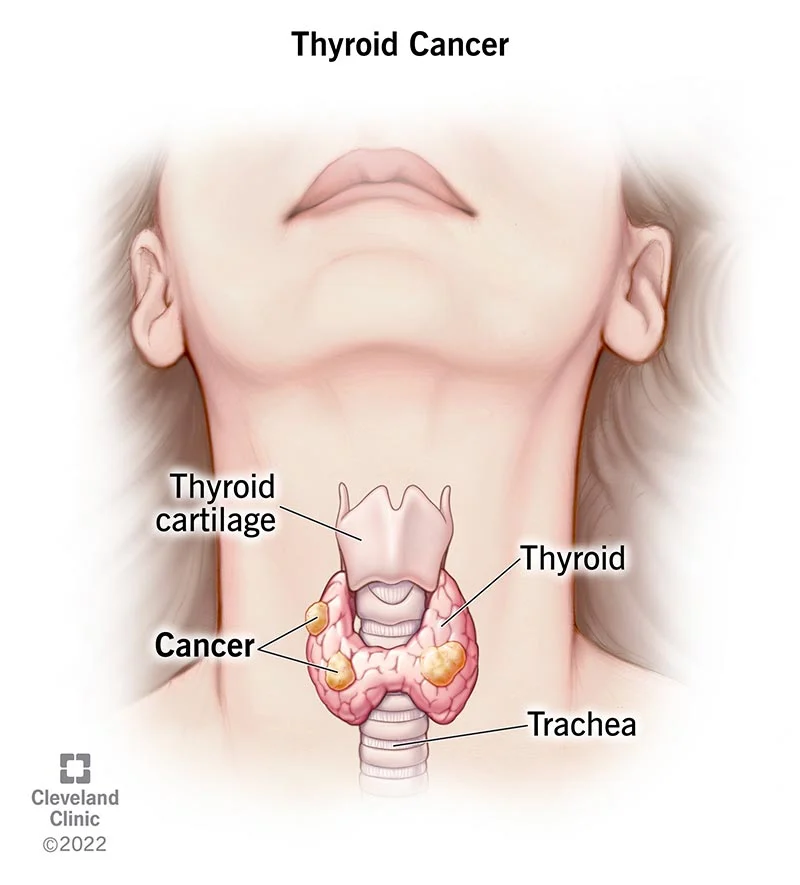Service Details

Thyriod Cancer
Thyroid cancer is a type of cancer that starts in the cells of the thyroid gland, which is located at the base of the throat. The thyroid gland produces hormones that regulate various functions in the body, including metabolism. Thyroid cancer occurs when the cells in the thyroid gland grow and divide uncontrollably, forming a tumor.
There are several types of thyroid cancer, including:
-
Papillary carcinoma: This is the most common type, accounting for about 80% of thyroid cancer cases. It tends to grow slowly and has a good prognosis.
-
Follicular carcinoma: This type makes up about 10-15% of thyroid cancer cases. It also tends to have a favorable prognosis.
-
Medullary carcinoma: Medullary carcinoma accounts for about 4% of thyroid cancer cases. It arises from the C cells of the thyroid gland and can be associated with certain genetic syndromes.
-
Anaplastic carcinoma: This is a rare and aggressive type of thyroid cancer that tends to grow and spread quickly. It accounts for about 2% of thyroid cancer cases.
-
Thyroid lymphoma: Thyroid lymphoma is a rare type of thyroid cancer that arises from lymphocytes, which are immune system cells. It is often associated with a rapidly enlarging thyroid gland.
The exact cause of thyroid cancer is often unknown, but certain risk factors can increase the likelihood of developing the disease. These include a family history of thyroid cancer, exposure to radiation, certain genetic syndromes, and a history of goiter (enlarged thyroid).
Symptoms of thyroid cancer may include a lump or swelling in the neck, hoarseness or voice changes, difficulty swallowing, neck or throat pain, enlarged lymph nodes, and changes in thyroid function (such as hyperthyroidism or hypothyroidism).
If thyroid cancer is suspected, a doctor may perform a physical examination, order blood tests to assess thyroid function, and conduct imaging tests such as ultrasound, CT scan, or MRI. The definitive diagnosis is usually made through a biopsy, which involves removing a sample of tissue from the thyroid gland for examination.
Treatment for thyroid cancer depends on the type, stage, and individual factors. It may include surgery to remove part or all of the thyroid gland (thyroidectomy), radioactive iodine therapy to destroy remaining cancer cells, external radiation therapy, and in some cases, targeted therapy or chemotherapy.
The prognosis for thyroid cancer is generally favorable, with high survival rates, especially for the most common types, such as papillary and follicular carcinoma. Regular follow-up care and monitoring are important to detect any recurrence or metastasis.
